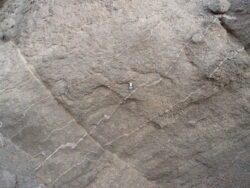Investigating deposits of lithium at key sites across the Balkan Peninsula

Project lead: Dr Ivan Savov
Project objectives
- Sample alkaline element rich pegmatite veins, especially enriched in Li (and B)
- Image and measure alkaline element gradients across key target areas (on all scales- from field to thin section)
- Determine/model the processes governing the Li (and B) distribution
Summary of the project
Lithium is an alkaline element that is highly valued globally, with deposits repeatedly called “white-oil”. This is owing to its effective use for the production of batteries, much needed for the vastly growing electric car industry. The global deposits of lithium are, however, not sufficient to satisfy the societal needs for this metal. Multiple types of deposits (sedimentary, brines, hydrothermal, magmatic) have been found globally and are currently explored mostly in Chile, China, Australia and the USA, with no large volume production anywhere in Europe, yet.
This project aims to investigate high temperature (pegmatite) veins and/or volcano-sedimentary deposits of lithium (and boron) at key sites across the Balkan Peninsula. The study will aim to uniquely combine the elemental and/or isotope signatures of key Li-containing minerals and their mineral associations in an attempt to decipher the lithium distribution and the mechanisms of its enrichment under magmatic and hydrothermal conditions. This study may have impact for the future discoveries and potential exploration of lithium from European deposits. The project may include fieldwork in Bulgaria or Serbia.
Project outcomes
This project will enable the student to develop excellent skills in techniques used in the geochemistry lab and in the field and establish links with the mining industry.
